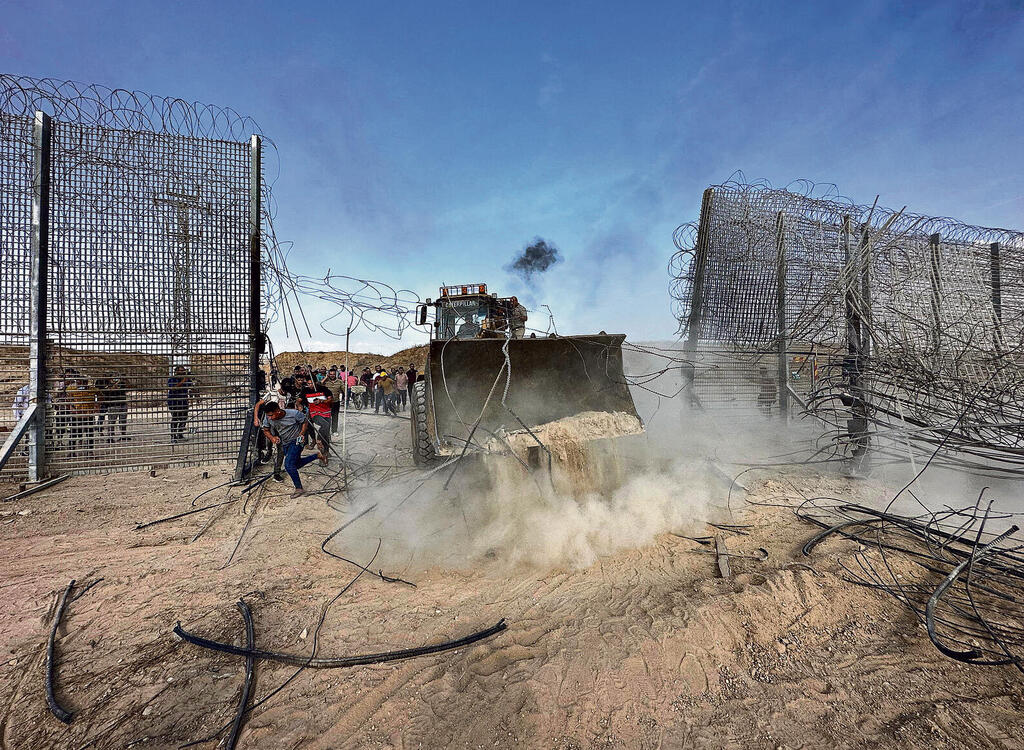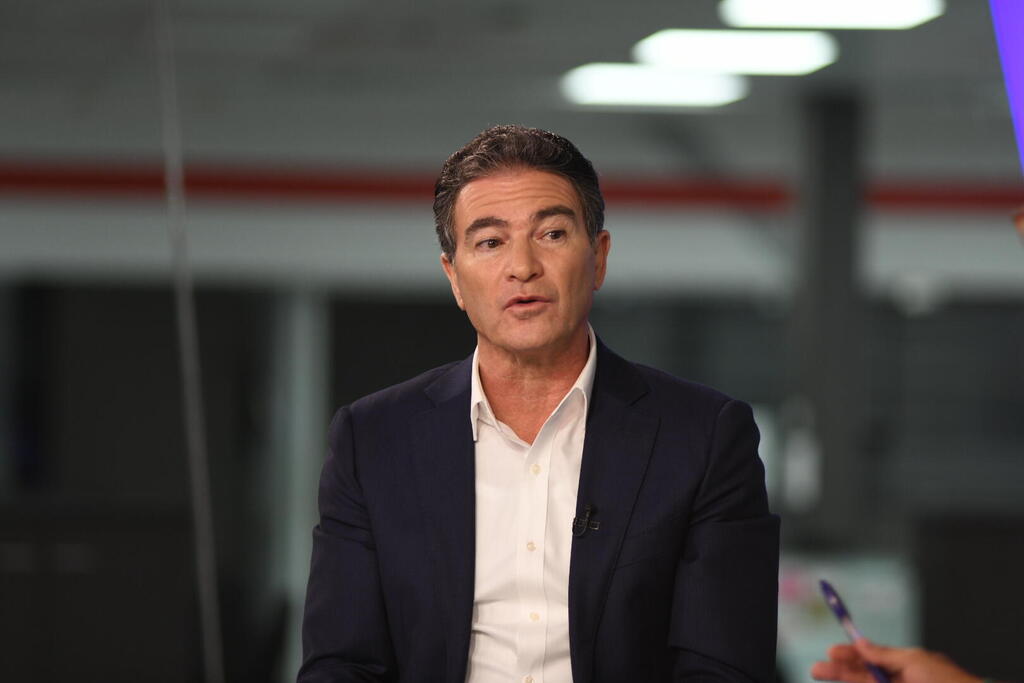Despite Israeli security officials finding major intelligence discovery in 2018, including secret documents that laid out, in intricate detail, what amounted to a private equity fund that Hamas used to finance its operations, nothing was done to stop the Hamas build-up, which in turn facilitated the October 7 attack.
More stories:
According to the New York Times, "the ledgers, pilfered from the computer of a senior Hamas official, listed assets worth hundreds of millions of dollars. Hamas controlled mining, chicken farming and road-building companies in Sudan, twin skyscrapers in the United Arab Emirates, a property developer in Algeria, and a real estate firm listed on the Turkish stock exchange."
The documents acquired could have served as "a potential road map for choking off Hamas’ money and thwarting its plans." However, nothing happened. The New York Times found that "none of the companies named in the ledgers faced sanctions from the United States or Israel. Nobody publicly called out the companies or pressured Turkey, the hub of the financial network, to shut it down."
Hamas' money apparatus, which circumvented around the Middle East and Africa, and converged and was facilitated in Turkey, according to the NYT, was sheltered by Turkey's President Recep Tayyip Erdogan.
"Mr. Erdogan was a major proponent of the nation’s building industry, which was good news for the company at the center of the Hamas portfolio: a real estate developer named Trend GYO," according to the report. Trend took advantage of Erdogan’s building boom. It brought in an investor, Hamid Al Ahmar, with ties to the president. And it reorganized itself as a real estate investment trust, which had Turkish tax advantages, and went public.
This, along with several other businesses, allowed Hamas to acquire hundreds of millions of dollars which would allow the organization to both thoroughly plan the October 7 attack as well as allow the Hamas leadership to rearm, rebuild and relaunch an offensive against Israel in case of a cease-fire. Mossad officials realize that the money was one of the main factors that enabled the Hamas build-up and prepare groundwork for the October 7 attack. In 2016, former Mossad chief Yossi Cohen closed the Harpoon Task Force, a Mossad unit in charge of financial counterterrorism, which was supposed to monitor the Hamas money machine.
5 View gallery
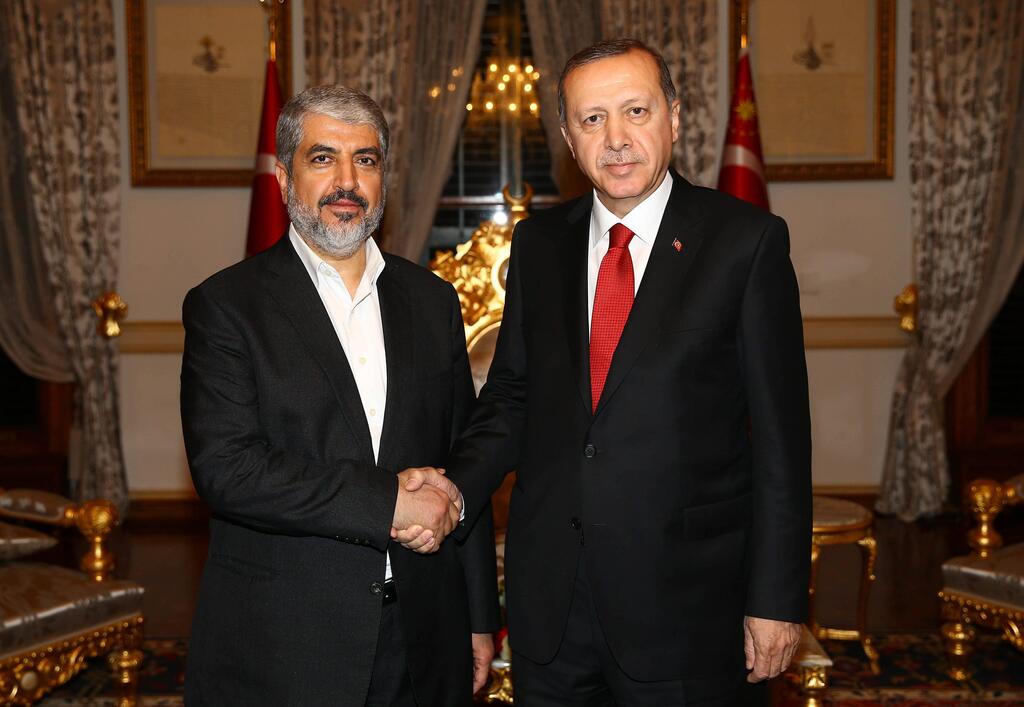

Hamas official, Khaled Mashal with Turkey President Recep Tayyip Erdoğan
(Photo: EPA)
“Everyone is talking about failures of intelligence on Oct. 7, but no one is talking about the failure to stop the money,” said Udi Levy, a former chief of Mossad’s economic warfare division. “It’s the money – the money – that allowed this.”
By 2015, the Harpoon Task Force agents were on to what they called Hamas’ “secret investment portfolio.” While global terrorist organizations such as Al Qaida and ISIS used 'dummy' companies to launder money, Hamas used real, multinational, profit-churning companies to fund its activity and its plans. According to the NYT, "on paper, they looked like unrelated companies. But over and over, the Israelis said they identified the same Hamas-linked figures as shareholders, executives and board members."
The Trump administration did not act on the Hamas network. However, according to the New York Times, even after the Treasury Department finally levied sanctions against the network in 2022, associates of Hamas were able to obtain millions of dollars by selling shares in a blacklisted company. According to the Treasury Department’s under secretary for terrorism and financial intelligence, the Treasury Department now fears that such money flows will allow Hamas to finance its continuing war with Israel and to rebuild when it is over.
5 View gallery
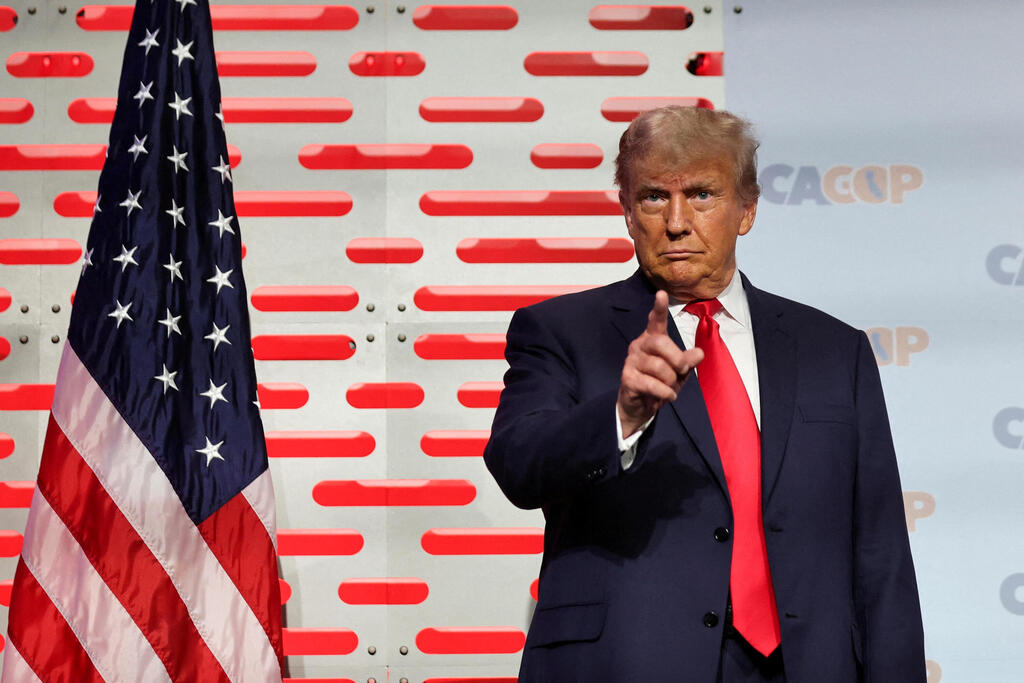

Nothing interrupted Hamas build-up during Trump presidency
(Photo: REUTERS/Mike Blake)
“It’s something we are deeply worried about and expect to see given the financial stress Hamas is under,” said Brian Nelson, the Treasury Department’s under secretary for terrorism and financial intelligence. “What we are trying to do is disrupt that.”
Meanwhile, Netanyahu's encouragement of Qatar to deliver millions in dollars to the Gaza Strip went against his gamble that the money would be used to "buy peace and stability" and resulted in inadvertently aiding Hamas' build-up. Despite warnings from the former Harpoon Taskforce, both the U.S and Israel prioritized sanctions on Iran instead of stopping Hamas funding in its tracks.
5 View gallery
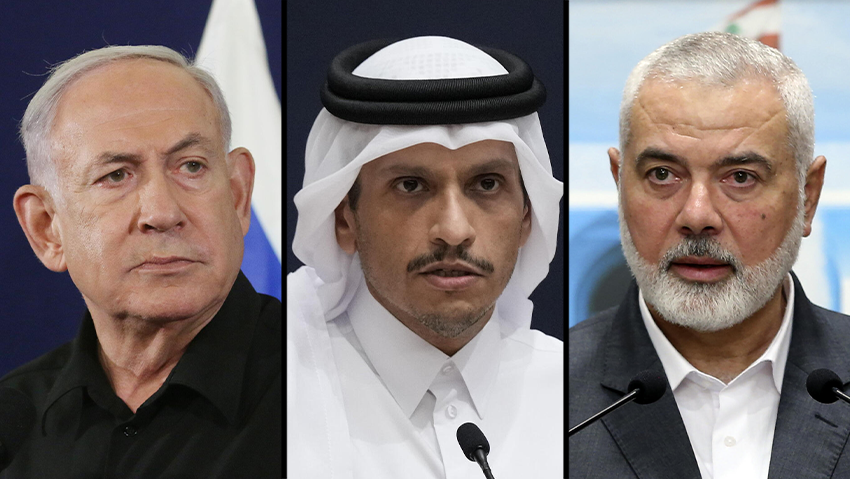

Benjamin Netanyahu, Qatar Emir Sheikh Tamim bin Hamad Al Thani, Hamas' Ismail Haniyeh
( Photo: Dana Kopel, Dalati Nohra/Lebanese Official Government via AP, AP /Jacquelyn Martin, Pool)
Levy, former Task Force Harpoon chief, recalled personally briefing Prime Minister Benjamin Netanyahu in 2015 about the Hamas portfolio. “I can tell you for sure that I talked to him about this,” Mr. Levy said. “But he didn’t care that much about it.”
This even led former Harpoon agents to upload documents to Facebook, "hoping that companies and investors would find them and stop doing business with Hamas-linked companies." However, nothing happened.



